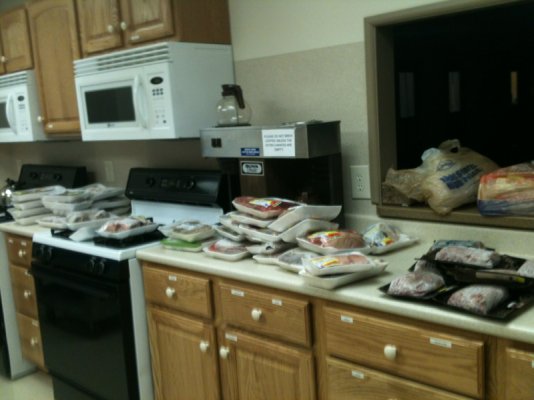Same as another interviewee for the quoted article, Adkins had never applied for public assistance in her life. Taking that at face value, we see that these people were not life-long welfare recipients. I surely hope that they will not become one.
I re-read the article to check that Adkins did make efforts to find a job, any job. She said she would have had a better chance if she weren't living in her car. Following is an excerpt.
She pauses, then says, "It's weird. When people find out I'm homeless, it changes how they feel about me. I get declined for jobs. As soon as they learn I live in a van, I'm a thief."
Responding to a job listing online, she had spoken with a woman who wanted to exchange pet care for rent on a trailer she owned. But during the interview, the woman asked where she lived, and Adkins could only evade the question for so long.
"What?" the woman responded. "How old are you? And you have no money?" Adkins tried to caution her against judging homeless people, but she knows that as soon as she has to make that kind of appeal, she's already lost.
Another time, she got an interview for a job as a dog walker. The potential employer was a young woman in her twenties, and Adkins thought she'd be open-minded, so she didn't hide her situation. The woman's face changed instantly. Adkins looked at her and took hold of her hand and gave it a squeeze. "It doesn't change who I am," she told the woman. "I'm still the same person. I'm honest, I've always worked hard and I'll work hard for you." But the woman had already withdrawn, and the next day she reposted the ad.
Earlier posters had raised questions about how Adkins ended up in Santa Barbara. The article said that she grew up there, and after camping out in AZ for a short time after the loss of her home, went back to CA hoping to connect with people she knew or grew up with. The erratic part-time work, a few hours here and there, was with a plant nursery where she worked as a teenager (she is 56 now!).
Something came to my mind. Why was there no friend or relative who could "lend" her an address, so that she could get a job? Due to recent threads, one on whether to help a relative and another on American culture, I wonder if our society now has such a closed heart, that we will not give the down-and-out another chance, not even to our friends and relatives. Does this come with individualism, something I myself value?
Or is there something more about Adkins' situation that we don't know about? I realize that by simply asking a question to keep probing the possibility that "there must be some reasons why she did not get help", I am already among the people who are closing their heart.
The article did make a comparison to the New Orleans flood a few years back. FEMA poured a lot of money in to help the evacuees. Thinking about this, I realized that we did not back then say that these New Orleanders should get no help, because they should know to prepare to evacuate themselves, given plenty of storm warnings. I know, I know, some critics did make the same judgement back then, but as the whole, the nation did not.
We need job creation and jobs must come from the private sector. But if no one wants to hire people who live in cars, these "untouchables" are doomed. Note that Adkins still sleeps in her van, and not yet truly homeless. It can still get worse for her.



